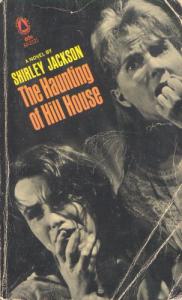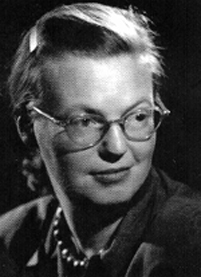I’ve been
thinking about papers – school papers (as opposed to newspapers or rolling
papers) – one especially that I wrote for high school English in my senior year.
I broke every rule about how to produce the paper (someday I’ll tell the story
how, but not now) and I still received an A+ on it. It was about film editing
and how it was one of the defining elements of what makes a movie a movie.
For reasons that
so far escape me, I’ve been thinking a lot about what I may have actually said
in that paper, wondering if I still believed any of it.
Too bad the paper
was never returned to me. I’d had a chance to look it over. Mr. senior year
English teacher, Mr. Hurley, allowed me to see the grade he placed on it, but
needed it back for whatever arcane recording purposes Chicago Public Schools
teachers needed to hold on to senior papers. I saw the grade, glanced over its
contents and a few penciled-in comments, and back it went into Mr. Hurley’s
folder.
On the last day
of classes, my last day of high school, I sought out Mr. Hurley in his
classroom. In the corridors, students were emptying their lockers as if they
were those German military functionaries you always saw in the World War II
movies, where the Allies are advancing and the Axis minions are throwing all
their maps and files into big fires. I probably didn’t see any bonfires in the
hallways of John F. Kennedy High School, but it looked like the word was out
that everything – EVERYTHING! – must be
destroyed. The trash cans were filled to the max, so the hallways effectively became the trash cans. The other
significant difference was that the students were in a much better mood about
dumping textbooks into garbage bins than the gray-uniformed officers seemed to
be about torching their precious documents (the moral to this side-tale appears
to be that any organization which lives by bureaucracy dies by bureaucracy).
When confronted,
Mr. Hurley claimed my paper was in his office and would be “difficult to locate
at this moment.” I’m not sure if he was speaking of the paper or his office.
Either way, he looked like a man with a briefcase filled with embezzled funds
and a phony passport in the pocket of his sportcoat. Or perhaps he was afraid
the First Division had already secured that part of the building. Whatever was
really on his mind, he looked surprised that I would want the paper returned,
but insisted he would get it back to me “somehow.”
That was in 1973.
Since then, I
have seen neither the paper nor Mr. Hurley.
Mr. Hurley was
never someone you’d characterize as a teacher dedicated to his subject. I don’t
recall many literary discussions in his class, nor did he ever endeavor to
instill in his students a love for the written word. I do recall we spent a lot
of time going over selected cantos from Paradise
Lost, but I also recall we were considering them more like a legal document
than a work of poetry.
English as a
subject for Mr. Hurley was one of those “skills” you pick up to advance your
opportunities for advancement in the faceless offices of industry and commerce.
Your District Supervisor might note that you can hammer out a letter more
grammatically than your fellow underlings, or make a better presentation at a
sales conference, and thereby you’ll earn enough to purchase a better grade of
white shirt to go along with your double-knit suit and Christmas tie.
To Mr. Hurley,
from what I experienced, the inherent value of literature as literature was no value at all. He was a notably uninspiring
English teacher, though he may have been a good chess player (I believe he also
sponsored the school’s chess team).
My adolescent thoughts
on film editing are no great loss to the world, I suppose. I just wonder, as I
enter (or extend my occupancy of) my dotage, what those thought were. I may
have been smart, by accident. Or I may have been stupid in a seemingly smart
way. In those days, I was a passionate lover of the cinema. Today, I find
myself rather estranged from the medium, with notable exceptions. I find myself
ranting over the shortage of great films and great filmmaking – until I
encounter a great film, and my love of the form is reborn.
I am curious,
though, if the paper might help me figure out if I loved cinema because it was
a great storytelling medium, or if I discovered my love of storytelling from my
love of movies. The difference may be slight, but it’s the slight distinctions
that mean the most.
There are two
other of my papers that are apparently lost to the ages, both of them dating
from my grad school years at Northwestern University. The professors for whom I
wrote them are now deceased.
In one of them, I
came up with my most incisive thoughts on the novelist Muriel Spark and her
great novel, Loitering With Intent.
The paper effectively saved my grade. I was expecting a B at best from
Professor Elizabeth Dipple and somehow managed to pull an A- on the strength of
that paper. The thoughts came to me, though, in the midst of some 3 a.m.
inspiration (and a haze of caffeine and nicotine) and for the most part now
escape me. I would like to read over my “brilliant” analysis of Ms. Spark’s
novel, in case I ever need to be that brilliant again. But I doubt I ever will
(see the paper or ever be that brilliant, take your pick).
The other paper
took on Heart of Darkness – a topic
my professor specifically warned the class against because, to paraphrase, “I
have read everything that has been said or ever can be said about that book, and nothing you can write will strike me as new or interesting.”
Yet I persisted,
approaching the novel as a critique of reality, eventually connecting it up to
the works of – believe it or not – Philip K. Dick. It all had to do with A.)
the frame story, and B.) Marlow’s hatred of lies, leading to the lie Marlow
tells in the end. Oh, it also had references to the “fascination of the
abomination,” the description of one being “captured by the incredible that is
the very essence of dreams,” and Marlow’s regarding his choice of nightmares. I linked all these to Borges, Philip K. Dick
and Gene Wolfe.
How I got away
with it, I’ll never know.
While I was
working on a final examination in class, the professor, Alfred Appel, looked over the final
papers that were turned in at the beginning of class, including mine. At a
point halfway through the examination, I heard the professor loudly whisper, “Son
of a bitch!” I looked up and could see he was reading one of the papers. Either
from immodest egotism, or unhealthy self-contempt, I could not help but suspect
he had gotten to my paper.
But I did receive
an A for the course, whether on the strength of that paper or not, I’ll never
know.
I kind of wish I
could know, but I can’t.
So I’ll just have
to come up with something better.
Happy New Year to
all!









